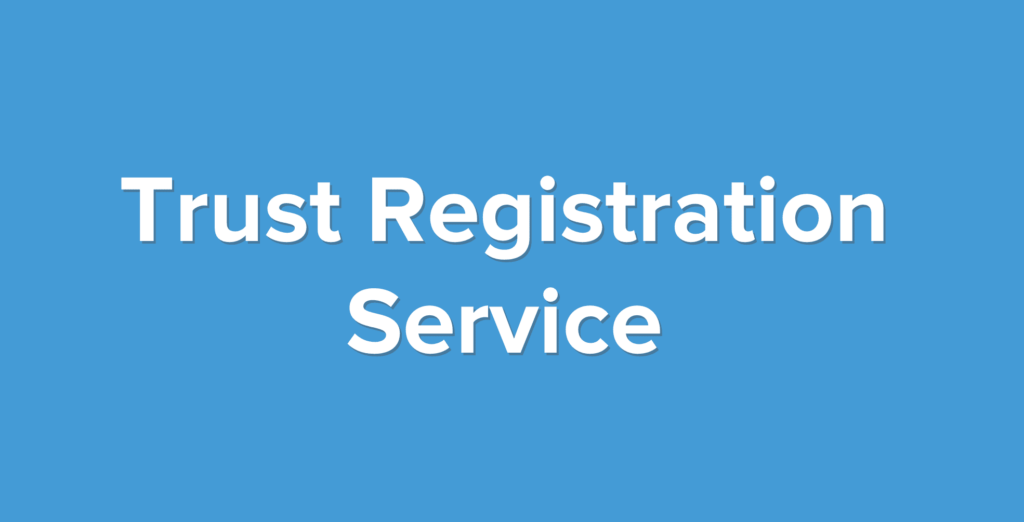In September 2021 the Trust Registration Service (“TRS”) was extended to include all existing UK trusts and some non-UK trusts, irrespective of whether the trust has a UK tax liability. Until now, trusts where the trustees have incurred some type of tax liability have had to be registered on the TRS, but those trusts where the trustees have had no tax to pay, have not had to be registered.
The extension to the TRS means that all trusts, irrespective of whether they have a tax liability, are required to register by the 1st September 2022 (subject to limited exceptions).
The Trust Register was introduced to provide greater transparency around the ownership of trust assets and individuals connected with trusts.
As part of the registration trustees provide details relating to the trust, including the identity of the trustees, beneficial owners, beneficiaries and trust assets. They are also required to keep the information up to date and confirm annually that there have been no changes.
Trusts with no relevant UK tax liability which were in existence on or before the 6th October 2020 must register before the 1st September 2022.
Trusts created after the 6th October 2020 must register within 90 days of being created or by the 1st September 2022, whichever is later.
The Trust Register must be updated within 90 days of any changes to the trust details or beneficial ownership. Where the trust is taxable, the trustees must also declare on their Self-Assessment tax return that the Trust Register is up to date.
To avoid penalties, it is important that trustees review their position to assess their registration obligations in relation to registering and updating the Trust Register.
If your trust is already managed by Royce Peeling Green incorporating Crawfords, we will have taken the necessary steps to register the trust. However it is possible that you may have additional trusts which do not have a tax liability in which case we may not know about them. If this could be the case please speak with your usual contact so that we can check they are all registered.
How to register your trust
There are two possible options in terms of responsibility for registering a trust:
- The trustees can authorise an ‘agent’ to register the trust on their behalf, or
- The trustees can register the trust, with one trustee being designated as the ‘lead trustee’ for HMRC correspondence (for most trusts, the registration process is relatively straightforward).
If the lead trustee is registering the trust, they must first obtain a Government Gateway user ID and password if they don’t already have one. This can be created the first time you register. A Government Gateway user ID will be needed for each trust that want to register. The Trustee will need to give an email address (this will be linked to the trust’s Government Gateway account) and their full name.
Once the lead trustee has registered the trust, if the trust is liable to tax HMRC will send the lead trustee a Unique Taxpayer Reference (UTR), usually within 15 working days. The trustee will need the UTR to start filing self-assessment tax returns.
If the trust is not liable to pay tax, the trustee can get their Unique Reference Number (URN) by logging back into the service following submission of the registration.
If the trustee wants Royce Peeling Green incorporating Crawfords, acting as agent, to view or make changes to the trust’s registration details, they must authorise RPG to do so with HMRC.
The role of the trustee
Legal responsibility for registration falls on the trustees, and it is a matter for trustees to decide and appoint a lead trustee to do this; whether managing the process themselves or appointing an agency (a role Royce Peeling Green would be happy to undertake.)
The trustees are required to keep accurate and up-to-date written records of the beneficial owners, including settlors (the persons who established the trust), trustees, and beneficiaries. The lead trustee is also obliged to keep the register updated each year or when certain specific events occur. HMRC may impose penalties and fines for non-compliance on trustees who fail to comply with the registration requirements.
In addition, trustees must register ‘complex estates’ on the TRS, which are estates where:
- the total tax liability (income tax plus capital gains) for the entire administration period exceeds £10,000
- the probate gross value exceeds £2.5 million
- the value of assets sold by the personal representative in any one tax year exceeds £500,000
What happens if you do not register a trust with the TRS?
There is a legal obligation for trustees to register the trust, but some trusts are exempted from doing so. If you do not register your trust or keep the details on the register up to date, HMRC enforces penalties.
It’s proposed that these penalties are not as severe as the self-assessment penalty regime, and that ‘nudge letters’ will be sent for first offences with a proposed penalty of £100 for any subsequent offences.
There will be a similar appeals process to the self-assessment regime. HMRC will enforce more stringent penalties if trustees deliberately ignore the registration requirements.
Which trusts are excluded from the TRS?
Trusts excluded from the requirement to register, include:
- pension schemes
- charitable trusts
- will trusts that are wound up within two years of death
- insurance policy trusts paying out on death or critical illness
- existing trusts with a value of less than £100 created prior to 6 October 2020
All existing trusts must be registered with the Trust Registration Service (“TRS”) by 1st September 2022. Please take any action that may be required and speak with your usual contact at RPG Chartered Accountants incorporating Crawfords on 0161 608 000 or email info@rpg.co.uk if you need any additional support.








 Production
Production
